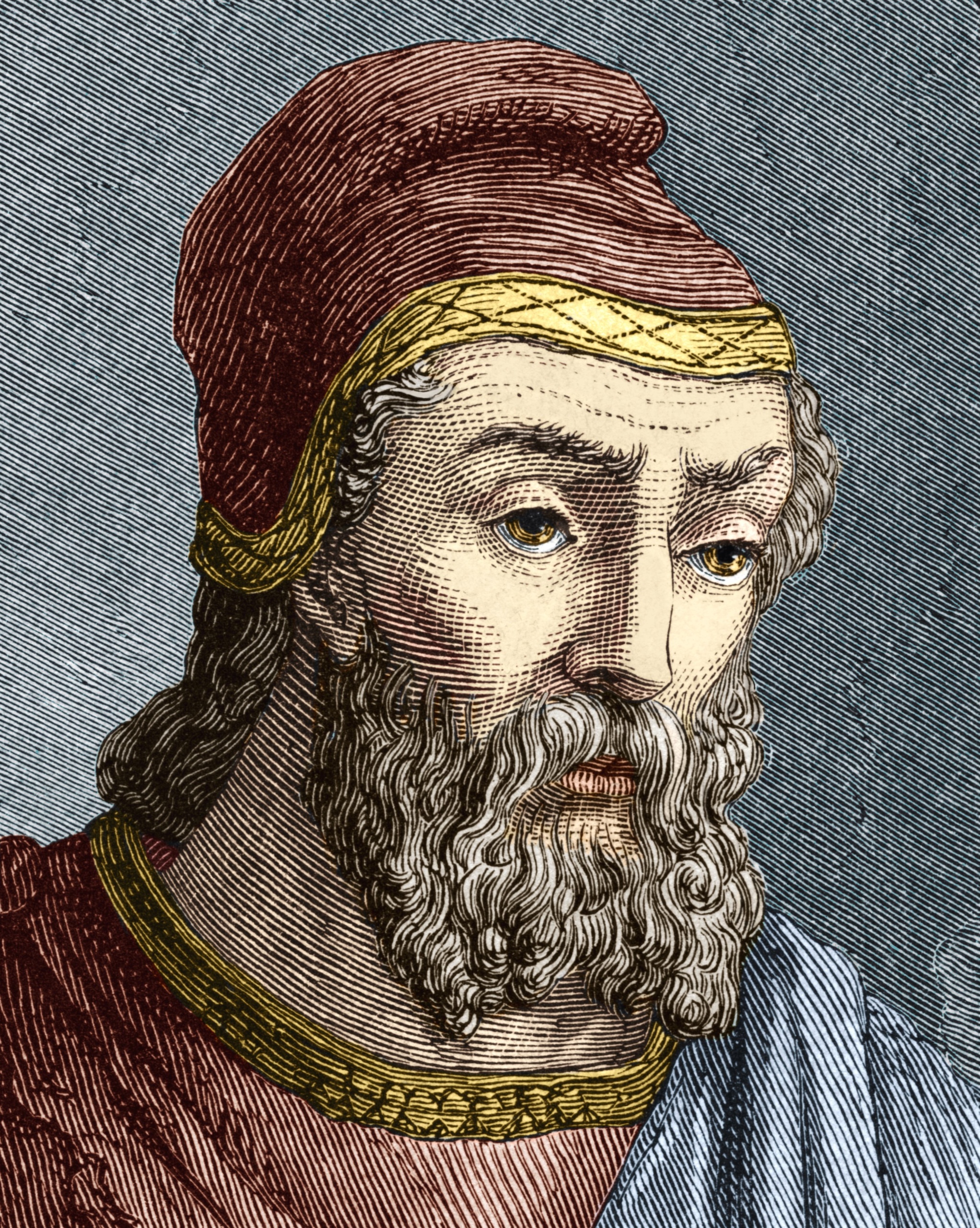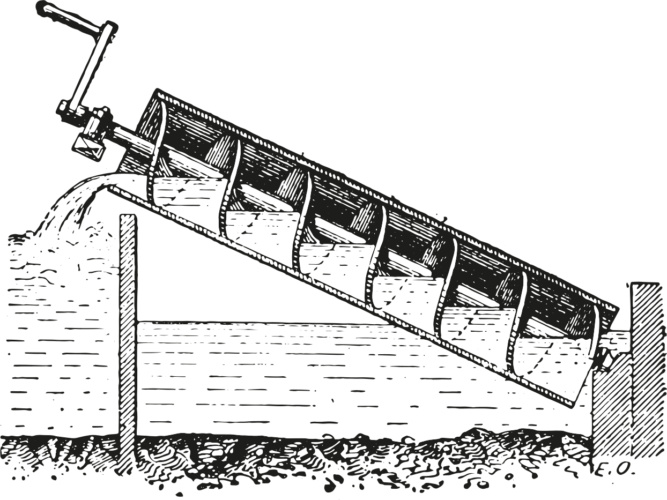
"Give me a lever and a place to stand and I will move the earth.” These are supposed to be the words of the greatest scientist of antiquity, and yet, as with so much about Archimedes of Syracuse, it is virtually impossible to separate myth from reality.
The legendary flash of bath-time inspiration – the original ‘eureka’ moment that we were taught at school – while almost certainly apocryphal, has passed indelibly into science folklore. It remains popular as the only incident of public nudity related to the history of hydrostatics, and yet is unlikely to have been the inspiration for Archimedes’ two-volume treatise On Floating Bodies. As one biographer, Eduard Jan Dijksterhuis puts it: “the overflowing of water from the bath does not teach anything about the upward thrust acting on a body immersed in water.”
Today, Archimedes’ legacy rests on a vague portfolio of ideas: he anticipated calculus, formulated the eponymous hydrostatic principle, developed the design of the screw pump and devised an approach to determining π (pi) that was to be used for more than a thousand years, while one of the bounds he established for π (22/7) has remained a universal approximation ever since.
While there is very little in the way of verifiable historical fact about the life of Archimedes, there is a wealth of unsubstantiated and fanciful detail. An early Arabian biographer claimed that the ancient Greek mathematician was the son of Pythagoras, and there are claims he was a pupil of Plato. Both positions can be dismissed easily, but the fact that they routinely make their way into modern discussions about Archimedes seems to amplify the point that biographical facts about him are scarce. But what we do know about the man described by the author of A Contextual History of Mathematics as the “most original and profound mathematician of antiquity”, is that there are today nine extant treatises by Archimedes, covering subjects such as On the Sphere and Cylinder, On the Equilibrium of Planes, Quadrature of the Parabola, Method concerning Mechanical Theorems and more besides.
There are some biographical facts that have gained consensus with historians. Because we know that Archimedes died during the sack of Syracuse in the Second Punic War (placing his death at c.212BC), and because we know that he was 75 years old when he was killed by a Roman centurion (the 12th century Byzantine Greek historian John Tzetzes is considered reliable on this point), we can extrapolate that Archimedes was born in or around the year 287BC. Because he spent most of his life in the Greek city-state of Syracuse (modern Sicily) where he was a close acquaintance of King Hiero II, it is assumed that this is also his birthplace. Historians think he may have spent his early career in Egypt, but are more definite on the notion that Archimedes published his works in the form of correspondence with leading mathematicians of the time, including Conon of Samos and Eratosthenes of Cyrene.
As for his death, the ancient Greek biographer Plutarch (writing hundreds of years after the event) says the centurion that put Archimedes to the sword did so when the latter refused to leave his mathematical diagrams to attend a meeting with the occupying General Marcus Claudius Marcellus. His last words have been handed down to us as Noli turbare circulos meos (‘do not disturb my circles’), but these are not mentioned in Plutarch or anywhere else reliable.
Equally apocryphal, according to Encyclopaedia Britannica, is the story that Archimedes used a huge array of mirrors to burn the Roman ships besieging Syracuse. Britannica also questions the historical reliability of his two most famous quotations about levers and displaced bathwater, while admitting that this assortment of unsubstantiated anecdotes creates a picture of “his real interest in catoptrics (the branch of optics dealing with the reflection of light from mirrors, plane or curved), mechanics and pure mathematics.”
"Give me a lever and a place to stand and I will move the earth”
Archimedes
As Johnny Ball says in his book Wonders Beyond Numbers, the most famous legend concerning Archimedes is the one in which he “jumped out of the bath and ran down the street in the nude” having shouted ‘Eureka!’ (which is traditionally translated as ‘I have it’). Ball explains that what Archimedes ‘had’ was a scientific method of verifying the authenticity of the metallic composition of a crown commissioned by King Hiero II, subsequently produced by two jewellers from a bar of pure gold. According to Ball, when the king saw the crown, “he was thrilled, until someone whispered in his ear that the jewellers were not completely honest and may have substituted less valuable silver for some of the gold, which they’d kept for themselves. The problem was how he could prove it without bashing the crown back into its original gold bar shape? Hiero turned to Archimedes for help, but even he had no idea how to solve the conundrum until one day, as he climbed into the bath, water slopped over the sides…”
The story continues that when the crown was placed into a body of water, it displaced more water by volume than the original volume of the gold bar, proving that the gold had been adulterated with a lighter metal, silver. Most tellings of the tale rejoice in the supposition that the king, armed with the evidence of malfeasance that he required, then executed the two jewellers, despite there being not one shred of evidence for this. However, the ‘incident’ led to Archimedes being able to report in his treatise On Floating Bodies what has now become known as the Archimedes Principle, which is that a solid denser than a fluid will, when immersed in that fluid, be lighter by the weight of the fluid it displaces. His other associated observations were that an object immersed in water will displace its own volume of water, while an object less dense than water will sink until it has displaced its own weight and will then float, effectively weightless, on the surface. Which is why ships float. Archimedes used this knowledge to design the Syracusia, which at 110m presses a claim for being the largest transport ship of antiquity. Capable of carrying nearly 2000 people, it was too big to dock at any port in Sicily and so was sailed to Alexandria, where it was presented to the king, Ptolemy III Euergetes.

Although not famous in his lifetime as a mathematician, from his treatises we can deduce what breakthroughs Archimedes made. In his On the Sphere and Cylinder he tells us that the surface area of any sphere of radius r is four times that of its greatest circle (expressed today as S = 4πr2), while the volume of a sphere is two-thirds that of the cylinder in which it is inscribed, leading to the formula for the volume V = 4/3πr3. For anyone doubting the significance of the second of these discoveries, Archimedes left instructions for a sphere within a cylinder to be carved on his tomb, a fact confirmed by Roman statesman Cicero who rediscovered the monument a century-and-a-half after Archimedes’ death. In his Measurement of the Circle, that exists only as a fragment, we see his approach to defining π, which consists of inscribing and circumscribing regular polygons with large numbers of sides. His work on large numbers appears in a treatise called The Sand-Reckoner in which he created a place-value system of notation with the base 100,000,000, allowing him to express how many grains of sand it would take to fill the entire universe. Apart from the nine extant works, we can infer from later authors that he wrote other treatises that have not survived, as well as books of contested provenance on topics such as touching circles and geometrical puzzles.
It wasn’t to be until the 8th and 9th centuries, when his treatises were translated into Arabic, that the true significance of Archimedes as a mathematician was appreciated and his work was developed by medieval Islamic mathematicians. The invention of the printing press meant that his work (in Greek this time) gained widespread popularity in Europe, influencing the likes of Johannes Kepler and Galileo Galilei (who praised Archimedes as ‘superhuman’). His influence extended into the 17th century via Latin translations that reached René Descartes and Pierre de Fermat, and so had a profound influence on post-Renaissance mathematics. Today, the Fields Medal awarded by the International Congress of the International Mathematical Union – one of the highest honours in mathematics – carries a portrait of Archimedes along with the inscription Transire suum pectus mundoque potiri (‘rise above oneself and grasp the world’).










Comment: The UK is closer to deindustrialisation than reindustrialisation
"..have been years in the making" and are embedded in the actors - thus making it difficult for UK industry to move on and develop and apply...